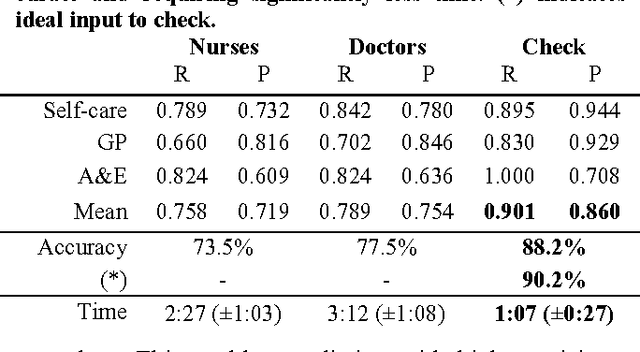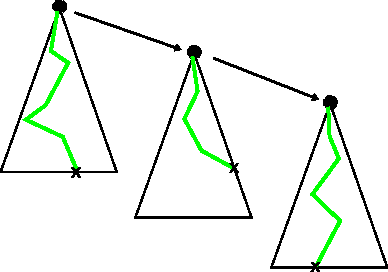Karan Mehta
Sorting out symptoms: design and evaluation of the 'babylon check' automated triage system
Jun 07, 2016



Abstract:Prior to seeking professional medical care it is increasingly common for patients to use online resources such as automated symptom checkers. Many such systems attempt to provide a differential diagnosis based on the symptoms elucidated from the user, which may lead to anxiety if life or limb-threatening conditions are part of the list, a phenomenon termed 'cyberchondria' [1]. Systems that provide advice on where to seek help, rather than a diagnosis, are equally popular, and in our view provide the most useful information. In this technical report we describe how such a triage system can be modelled computationally, how medical insights can be translated into triage flows, and how such systems can be validated and tested. We present babylon check, our commercially deployed automated triage system, as a case study, and illustrate its performance in a large, semi-naturalistic deployment study.
 Add to Chrome
Add to Chrome Add to Firefox
Add to Firefox Add to Edge
Add to Edge